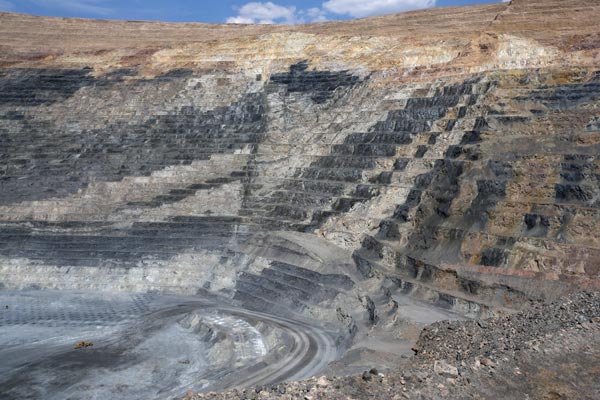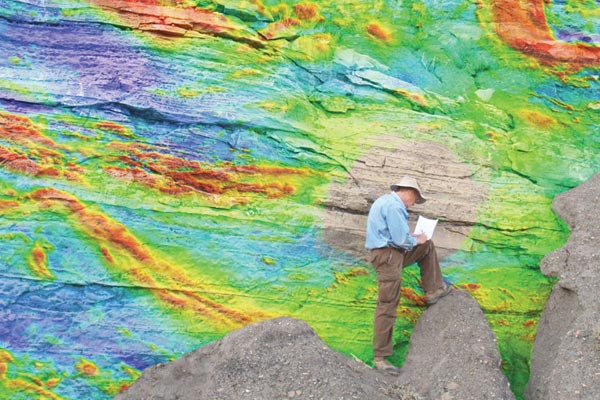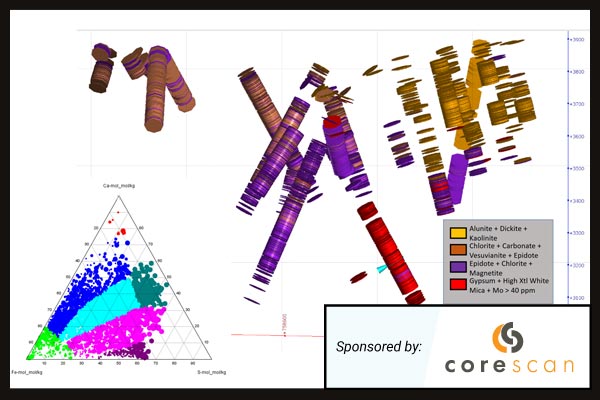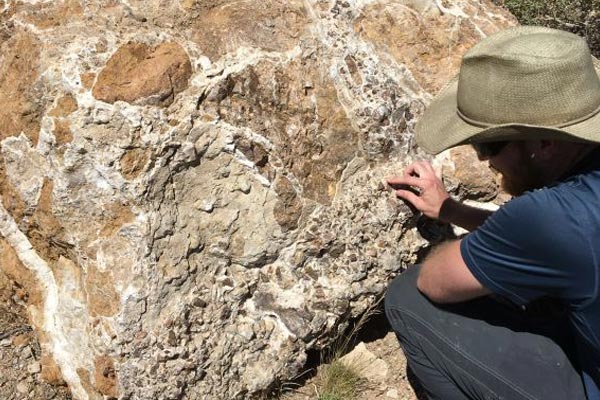Workshops
Pre-Conference Workshops

WS01 - Applied Structural Geology of Precious Metal-Bearing Hydrothermal Mineralizing Systems
Post-Conference Workshops

WS06 - Cu-Mo Porphyry Deposits: Multiscale Practical Approach from Magmas to Minerals
Workshop Details
WS01 - Applied Structural Geology of Precious Metal-Bearing Hydrothermal Mineralizing Systems
Date: September 21-22, 2018
Location: Keystone Conference Center
Presenters: Wayne Barnett, Stephen Cox, David Rhys*, Julie Rowland*, Blair Hrabi
This workshop will address the structural styles and controls on Au and Ag-bearing deposits, as well as methodologies for their assessment in exploration and mining environments. Presentations will review the structural characteristics of deposits and examine controls on fluid flow. Field relationships and workflows for data acquisition and interpretation at core-, deposit- and district-scale will be reviewed, illustrating the variety of structural features that may be used to constrain deposit scale geological models. Participants will receive a grounding in the principles of structural control. Although focused on Au-Ag deposits of different types, the information presented here also may be of benefit to workers in other structurally controlled, or modified mineral deposits.
Students will not exceed 20% of total participants. *Workshop organizer.
Attendee Maximum: TBD
WS02 - Introduction to Geology-Driven Resource Domaining and Modeling

Date: September 21-22, 2018
Location: Keystone Conference Center
Presenters: Matt Hastings, Anna Kutkiewicz
The workshop is jointly run by SEG, SRK, and Leapfrog and is designed to help resource, exploration, and production geologists take field observations and incorporate them successfully into their mining software to produce robust, reliable, and geologically realistic models for use in grade control, resource estimation, and exploration targeting. It is designed for all mine and exploration geologists and will be led by an experienced consultant from SRK (with help from the Leapfrog team) who operates at the forefront of modern geological modelling and resource estimation. The workshop includes presentations along with hands-on practical sessions. No prior knowledge of the software is necessary, although a general background in geological modelling would be useful.
Students will not exceed 20% of total participants. *Workshop organizer.
Attendee Maximum: TBD
WS03 - Geophysics for Geologists: Basic Principles and Case Histories
Date: September 21-22, 2018
Location: Keystone Conference Center
Presenter: Alan King*
This workshop is designed to communicate the basic principles and common applications of geophysics to geologists by relying on the individual's intuitive understanding of the physics of the world around them—that is, geophysics without equations. It will focus on, but not be restricted to, mining exploration, and is designed to give geologists the tools they need to understand and apply geophysics for all common mining exploration methods, as well as some of the whole-earth geophysical methods that are important in understanding larger scale tectonics and geoscience. It is designed to be an introductory applied course as well as an update for those that may have studied geophysics some time ago.
Students will not exceed 20% of total participants. *Workshop organizer.
Attendee Maximum: TBD
WS04 - Mineral Vectoring in Hydrothermal Ore Deposits: A Multiscale Approach

Date: September 21-22, 2018
Location: Keystone Conference Center
Presenters: Cari Deyell-Wurst*, Brigette Martini*
Recent advances in microanalytical techniques have provided explorers with the potential for an unprecedented and detailed level of knowledge into the mineralogy of their ore deposits. However, knowing when and how to deploy these techniques can be challenging. Furthermore, knowing how to scale these diverse technologies from micro- to deposit/district scale is one of the most difficult decisions explorers have to make. This workshop will focus on the use of mineral characteristics as exploration vectors in a range of hydrothermal ore deposits. Techniques covered will include spectral point data, hyperspectral analyses, and targeted mineral geochemistry (i.e., laser ablation ICP-MS, quantitative SEM-EDS, XRD, XRF, Raman spectroscopy). Guest speakers from both industry and academia will present case studies to reinforce the course objectives and give participants guidance on cutting-edge technologies and practical examples in order to incorporate mineral targeting within exploration workflows.
Students will not exceed 20% of total participants. *Workshop organizer.
Attendee Maximum: TBD
WS05 - Exploration Geochemistry: From Fundamentals to the Field
Date: September 26-27, 2018
Location: Keystone Conference Center
Presenter: Peter Winterburn*
An understanding of the basic geochemical concepts of element distribution and relationships from a global level to a mineral deposit scale will be combined with sampling theory and practices to provide a model-based geochemical exploration workshop. Sampling strategies, sample types, and key analytical methodologies will be discussed, leading into multi-element strategies for data interpretation and target selection and prioritization. The workshop will focus on porphyry-style mineralization, although other, non-porphyry examples will be discussed.
Students will not exceed 20% of total participants. *Workshop organizer.
Attendee Maximum: TBD
WS06 - Cu-Mo Porphyry Deposits: Multiscale Practical Approach from Magmas to Minerals
Date: September 26-27, 2018
Location: Keystone Conference Center
Presenters: John Dilles*, Kalin Kouzmanov*
Porphyry-type deposits are the principal world sources of copper and molybdenum, and important sources of gold and silver. This workshop provides an introduction to magmatic, hydrothermal and ore-forming processes, with examples from the geology of important and well-studied deposits. The goal of the course is to provide the students with knowledge of the basic characteristics of host rocks, styles of alteration and mineralization, and present-day understanding of ore-forming processes in porphyry systems based on recent scientific advances, using modern analytical studies from the multi-km to micron scale.
Students will not exceed 20% of total participants. *Workshop organizer.
Attendee Maximum: TBD
WS07 - Rare Earth and Critical Elements in Ore Deposits
Date: September 26-27, 2018
Location: Keystone Conference Center
Presenters: Murray Hitzman, Simon Jowitt*, Phillip Verplanck, Anthony Williams-Jones
The critical metals are fundamental to our modern way of life, the way modern society operates, and are vital ingredients in modern technologies such as wind turbines, advanced military equipment, smart phone and touch screen technology, and computing hardware. This two day course covers the majority of key aspects relating to the critical metals, including the concept of criticality, an outline of the metals that are considered critical, the geological processes that generate enrichments in these metals, and key critical metal deposit models. This course is suitable for both novices and experts, and a digital copy of SEG Reviews in Economic Geology, Vol. 19, on critical metals will be provided to all participants
Students will not exceed 20% of total participants. *Workshop organizer.
Attendee Maximum: TBD
- CANCELED




